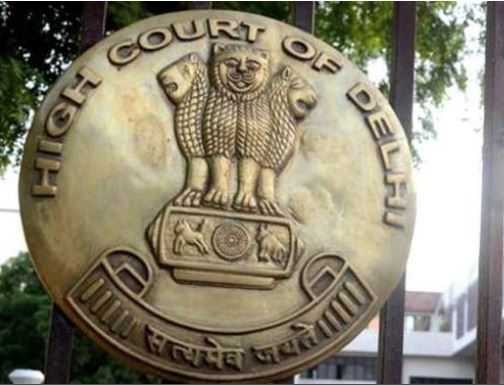The Central Government has informed the Delhi High Court that there is no blanket permission to any agency for interception or monitoring or decryption. The government said the agencies require permission of the competent authority i.e. Union Home Secretary in each case as per due process of law and justification for interception or monitoring or decryption. The Centre said this while asking the Court to dismiss the plea filed by Advocate Prashant Bhushan’s NGO Centre for Public Interest Litigation (CPIL) alleging the government is tapping phones and storing all the data from the internet traffic through CMS, NATGRID and NETRA in breach of privacy.
The Ministry of Home Affairs has informed the Delhi High Court that lawful interception or monitoring or decrypting of any message or class of messages or any information stored in any computer resources, is done by authorised law enforcement agencies having legal and statutory powers and after due approval of each case by the competent authority.
It further said,
“the same is done as per the legal provisions contained in section 5 (2) of the Indian Telegraph Act, 1885 read with Rule 419-A of the Indian Telegraph Rules, 1951 and Section 69 of the Information Technology Act, 2000 read with Information Technology (Procedure and Safeguards for Interception, Monitoring and Decryption of Information) Rules, 2009 and as subject to safeguards as provided in the prescribed rules and SOP.”
In his plea, Bhushan alleged “360 degree surveillance mechanism of all citizens” by the Government. He further alleged that the right to privacy was being endangered by the execution and operation of surveillance systems like the Centralised Monitoring System (CMS), Network Traffic Analysis (NETRA) & National Intelligence Grid (NATGRID).
In its 27-page affidavit, Rakesh Kumar, Union Secretary Ministry of Home Affairs, submitted,
“That the grave threats to the country from terrorism, radicalisation, cross border terrorism, cybercrime’ organised crime, drug cartels cannot be understated or ignored and a strong and robust mechanism for timely and speedy collection of actionable intelligence including digital intelligence, is imperative to counter threats to national security. This is undeniably legitimate State Interest. It is therefore imperative that the requests for lawful interception monitoring must be dealt with by the executive authority to maintain speed and promptitude in taking decision.”
“It is further submitted that though the right to privacy is held to be sacred fundamental right and is being respected by the Government of India, the veil of privacy can be lifted for legitimate State Interest namely in the interest of sovereignty or integrity of India, defence of India, security of the State, friendly relations with foreign States or public order or for, preventing incitement to the commission of any cognizable offence relating to the above referred categories or for investigation of any offence. All the aforesaid categories fall within the ‘legitimate State Interest’ making exercise of the power under aforementioned sections permissible when violating or infringing upon right to privacy as all the aforesaid factors are factors in furtherance of legitimate State Interest,”
-said the affidavit filed through Central government Advocate Ajay Digpaul.
Also Read: Arnab Goswami WhatsApp chat: Sanjay Raut raises issue in Rajya Sabha, says Centre protecting him
The Central Govt has further denied the Contention of the petitioner NGO that Centralised Monitoring System (CMS), NATGRID and NETRA allow the law enforcement agencies for bulk collection and analysis of personal data illegal and do not follow the privacy safeguards with adequate oversight. It said that the structure and functioning of the CMS, NATGRID and NETRA, are designed to strengthen the existing lawful interception process for more secure and transparent functional within prescribed legal provisions and procedures.
A divisional bench of Chief Justice D.N. Patel and Justice Prateek Jalan had previously issued notice to the MHA, Information Technology, Communications and Law and Justice to file their counter affidavit on the petition filed by the NGO which sought directions to the Centre to permanently stop the execution and operation of the surveillance projects, CMS, NETRA and NATGRID.
The NGO claimed that the Surveillance Projects allows the authorised central and state law enforcernent agencies to intercept and monitor all and any Telecom and Intemet Communications in bulk’ leading to a mass illegal dragnet surveillance system by the state’ thereby infringing the fundamental right to privacy of individuals.
Also Read: Committed to save Future Retail from sinking: Amazon tells Delhi HC
It also sought a constitution of a permanent independent oversight body judicial and/or parliamentary body, for issuing and reviewing lawful interception and monitoring orders/warrants under the enabling provisions of Indian Telegraph Act, 1885 and the Information Technology Act, 2000.
Read the affidavit here;
New-centre-vs-uoi

